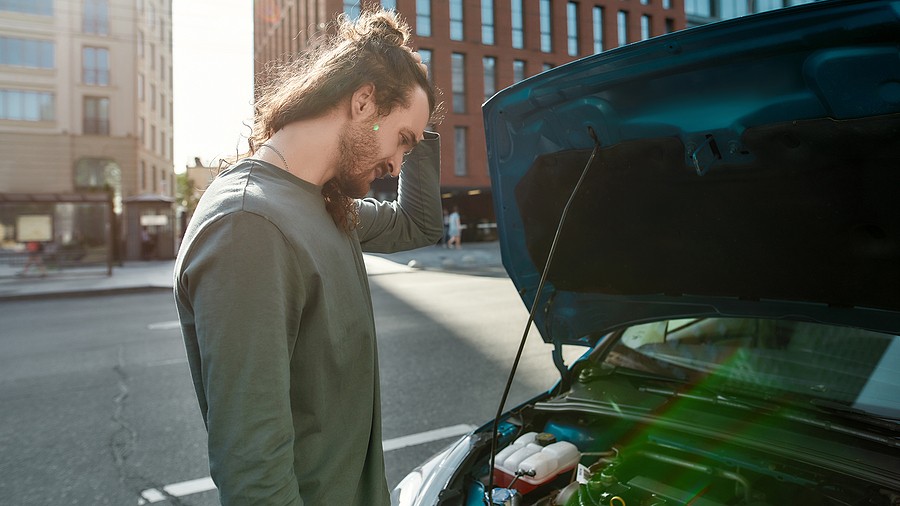When your car is driving, it shouldn't shut off. However, if this happens, you might have a problem with a bad crankshaft position, engine sensors, or issues with the fuel system.
If your car shuts off while driving, it can be very stressful, especially if you're driving in the middle of traffic or in an area where there's no help nearby. In addition, it could be very stressful because you need to figure out what to do next or are concerned about your safety, especially if you're driving on the highway.
You mustn't panic to resolve the issue without complications, especially if you have no previous knowledge. However, it can be very hard to control your emotions or not panic. Therefore, the best thing you can do for yourself as a driver is to educate yourself about what needs to be done when your car shuts off while driving and how to diagnose the problem.
In this article, we will walk you through all potential reasons behind your car shutting off without any clear reason, and we also highlight the step by step-by-step on diagnostics needed to determine the potential culprit and decide on the next step.
What to do if your car shuts off while driving?
If you were driving your car and all of a sudden you realize that the vehicle lost power and stop driving completely, you need to follow these recommendations by automotive experts:
- Do not panic
The first and most critical thing you need to do when dealing with the situation is not to panic. If you panic and get into a stress mode, you want to be able to take the right actions, and you might easily get into some stressful situations that could put your safety at risk.
- Get off the road safely
While your vehicle might have shut off suddenly, you might still have enough power to get your car out of there middle of the road and reach the shoulders. In some instances, you might even have enough power to get out of the highway and exit to the nearest local road, so you're safely parked without any risks of dealing with the coming traffic.
- Turn off the ignition
Once you're in a safe place, try turning off the ignition switch. This is a critical step because you might have a problem with some lags or clogs in the fuel system, and by just turning off the ignition, you might reset the vehicle and have it working again.
- Try restarting the car
Start turning off the ignition switch; the next step is to try restarting your car after a couple of minutes. If you don't have a significant problem, your vehicle might start again and should be fine. However, if your problem is very severe, the car might not start, no matter what you do.
Keep in mind that even if your car started. It was fine to drive again; you shouldn't ignore the problem because it could be an early sign of potential future damages that you need to be aware of here; therefore, we highly encourage you to get to the mechanic and have him inspect the car to determine what exactly happened and why your vehicle shut off on its own.
- Have an emergency kit
The recommendation to do is to have an emergency kit. Even if you are not involved in similar situations in the future, this emergency could help you stay warm and safe, especially if you're driving in extreme weather conditions like heavy snow or rain.
The emergency kit can be very handy if you're driving in a very outlying area or if you've been on a road trip where there's no immediate help nearby. Therefore, you would have enough supply to help you survive until the help comes to you.
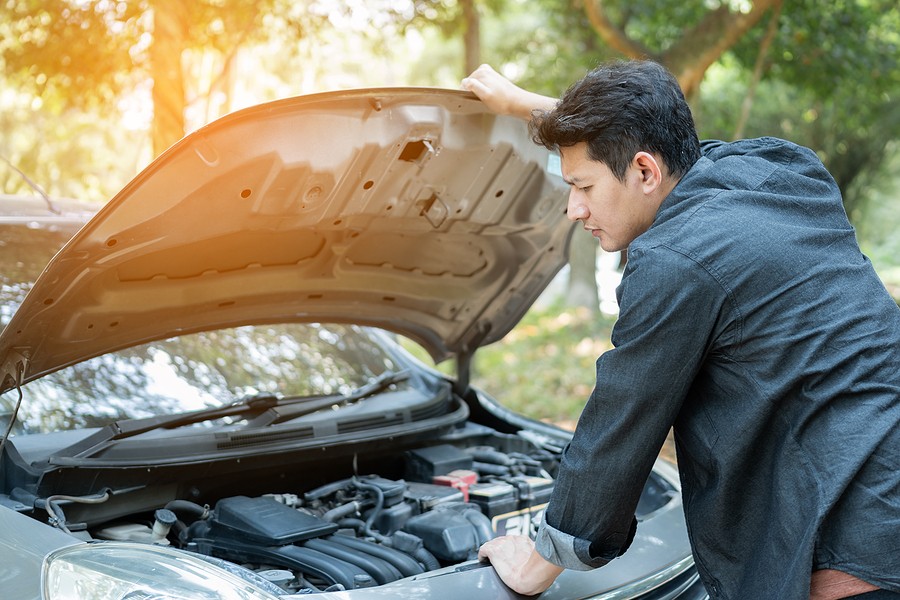
Why does a car shut off while driving?
Now you understand what needs to be done if your car shuts off while driving. However, what's more, it is important to understand why this situation happened in the first place. Which component should be faulty, and what should you do about it?
Typically, if your car shuts off while driving, you're dealing with one of the following problems:
- Troubles with the fuel system
The first and most common situation for your vehicle to shut off while driving is when you have a problem with the fuel system. For example, there might be an issue with the fuel supply that doesn't allow the engine to produce the required energy. Because the engine does not receive this fuel, it won't produce more energy, and the car will stop immediately.
- Issues with the electrical system
Common minor problems and the system might also suddenly lead to your vehicle shutting off. These problems could be linked to minor components you've been ignoring for some time. That's why we highly encourage you to follow the recommendations in your vehicle owner’s manual about what needs to be done and how often you should check on those components if you don't deal with this situation.
- Vehicle overheating
Did you know that engine overheating is one of the common reasons why vehicles shut off on their own? Vehicles might be equipped with certain protective measures that force the car to shut off when the engine exceeds a certain maximum temperature threshold. Therefore, when you realize that your engine is starting to overheat, you shouldn't ignore the problem because, in the end, your vehicle might shut off or get self-destructed.
- Malfunctioning sensors
Your vehicle contains many internal sensors, and the car will not function properly if there's a problem with any of these sensors. A common situation happens when some of those sensors fail, like the one related to the crankshaft or the oxygen supply. If they fail or break down, the vehicle might shut off suddenly without any previous warning signs.
- Engine stalling
Also, your vehicle might have a problem related to engine stalling, and if the engine is installed, you got to understand why this happened in the first place. Typically, the problem won't happen for no reason because there should be a linked culprit causing or triggering this issue. Thus, you need to discuss with your mechanic and investigate what is causing the vehicle to shut off.
- Fuel filter clogging
Finally, a minor problem related to fuel filter clogging might lead to the engine shutting off on its own. That's why you must check on the fuel filter regularly and monitor for any symptoms that could help you detect initial clogging in the fuel filter so you can resolve it before it gets more complicated.
Typically, a clogged fuel filter should be something you will notice over time, and it will lead to your vehicle turning off on its own if you've been ignoring the problem for a long time. That's why experts always recommend never to ignore any minor problem related to changes in your vehicle's behavior because it could be linked to a bigger problem. If ignored, it can lead to more severe troubles.
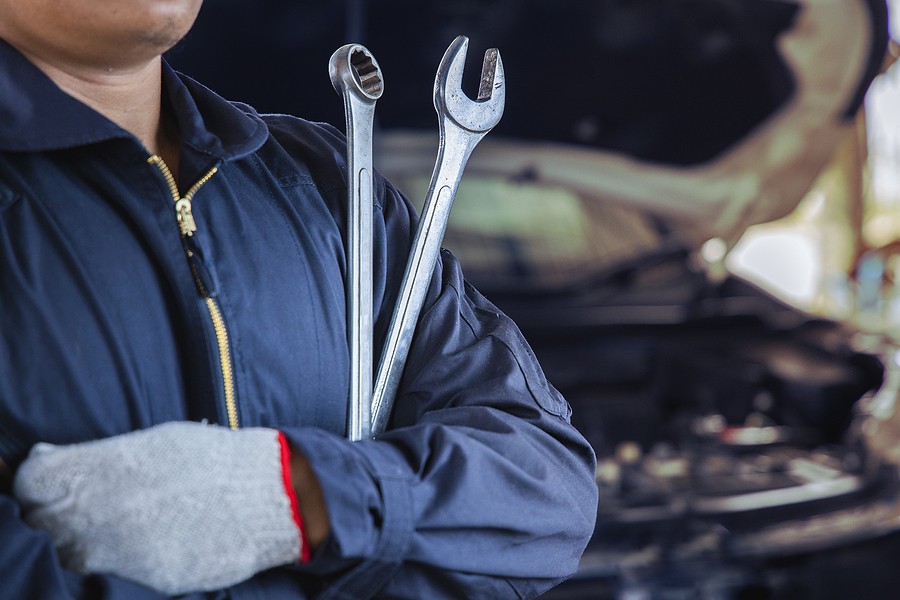
What diagnosis can you make if your car shuts off while driving?
If your car shuts off while driving, there are some diagnostics you can do to confirm the real culprit because there is a wide range of potential problems that could be linked to this problem, as we indicated earlier. Here's what you need to do:
- Check on the fuel system
The way to diagnose if your vehicle shuts off while driving is to review each component and confirm that it's running properly. For example, you can start by checking on the fuel system and confirming that you have enough gas in your gas tank. You can also watch for any symptoms indicating a failing fuel system like:
- Your carpet seems more fuel than it should
- Your vehicle hesitates, especially when accelerating
- The check engine light is illuminating
- Inspect the electric system
If you confirm that your fuel system is in good condition, the next step is checking on the electric system. After that, you can use some diagnostic tools like the OBD scanner. Still, you can also perform some visual inspection of the common components like the radio, the dash lights, the headlights, etcetera.
There are some common symptoms indicating that you have a failing electric system as well, including:
- Dead battery
- Faulty alternator
- Malfunctioning car wiring
- Check signs of overheating
Once you confirm that the electric system is in good condition, the next step is to confirm that your vehicle is not overheating. It's much easier to detect this problem than any of the previously mentioned ones because overheating is very obvious and will be accompanied by the following symptoms in most scenarios:
- Temperature gauge is reading very high
- The vehicle is hot overall
- There's a drop in the coolant level
- Inspect the sensors
After confirming that your vehicle is not overheating, the next thing you need to do is to check on the faulty sensors. Unfortunately, it can be tricky to determine which sensors are working properly. Still, you can use the scanning vehicle computer’s scanning tool and read the error codes, which could help you narrow down the list of potential culprits and confirm that your sensors are in good condition.
- Watch for engine stalling
If you have an engine stalling problem, it should also have some additional symptoms you need to look for. For example, you can check if you're experiencing the following:
- Fast fuel consumption
- Clogged air filter
- Damaged spark plugs
- Check the fuel filter condition.
Finally, you can inspect the fuel filter and confirm it's not clogged. A visual inspection would confirm that this filter is in good condition. Otherwise, you may need to replace the filter if you confirm it's the faulty component and is the one causing your vehicle to shut off on its own.

How much does fixing a car that shuts off while driving cost?
Unfortunately, it can take much work to determine how much it will cost to fix your vehicle if it shuts off while driving. The problem is that the IT could be linked to multiple components, and these components could be bad at the same time as well.
For example, if all your problem is a faulty fuel filter, you can replace it for somewhere between $50 and $175. On the other hand, if your problem is related to engine stalling, repair costs can vary significantly depending on the root problem. Still, it should cost you somewhere between $100 and $1000.
Remember that these price ranges are rough estimates and differ significantly depending on your vehicle type and the location where you get the job done. For example, if your problem is very simple and has to do with a clogged air filter, you can replace it on your own without needing to go to a professional mechanic, which saves you a ton of money on labor costs.
On the other hand, if the problem has to do with some damage in the engine that requires advanced mechanical skill sets, repair costs can climb significantly and require significant effort from professional mechanics, which adds a lot to the labor cost.
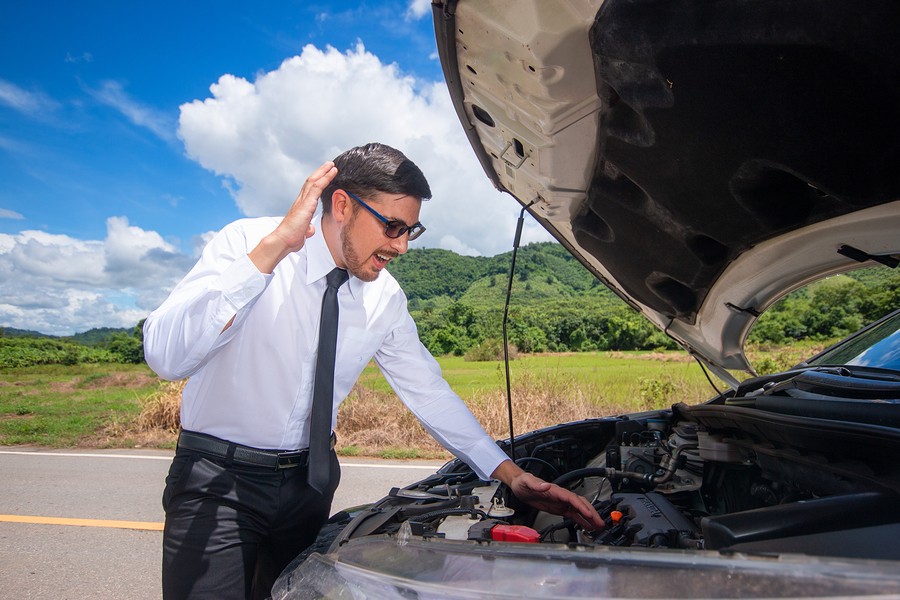
Should I fix or sell my car if it shuts off while driving?
Again, deciding whether you should fix or sell your car if it shuts off while driving depends heavily on the root problem and the repair costs. For example, if the problem is minor and requires minimal repair costs, you should fix it.
However, if it's very significant and requires money to get fixed, you'd better go with selling the vehicle rather than wasting your time and effort, and money gets it to work.
Keep in mind that this also might involve additional evaluation related to your goals and needs out of your car. For example, if you're looking to upgrade your car and want more seats for your family members, it might be the perfect time to sell this car, even if it only requires a little money to get it to work.
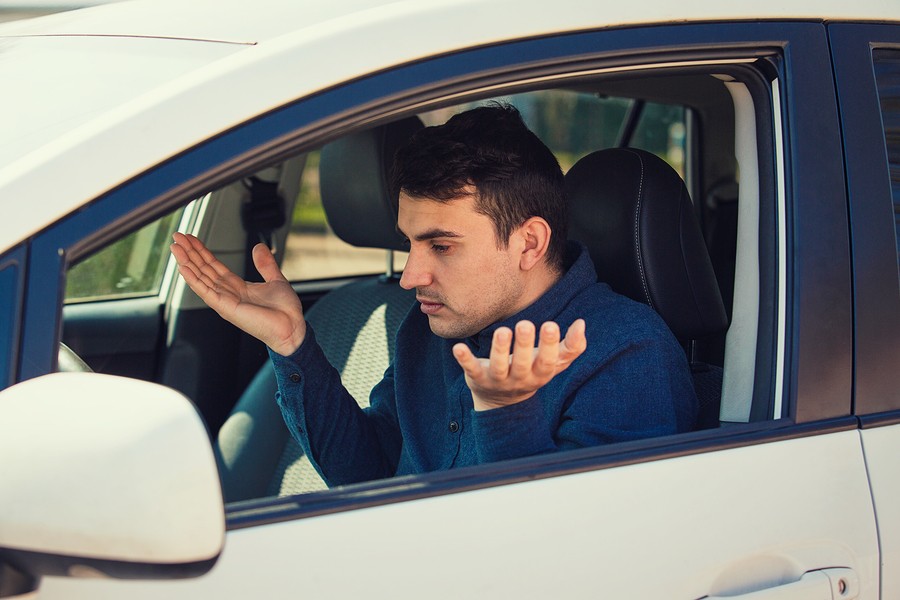
Final thoughts
If your car shuts off while driving, the situation can be very stressful, and you need to have the required experience to know what exactly needs to be done. This article provided recommendations on how to diagnose the problem and when to reach out to the mechanic to resolve the issue safely without any complications.
If you figure that's your car has significant problems and would like to sell it, Cash Cars Buyers always here to help you, and all you need to do is to call us at 7737914363.

